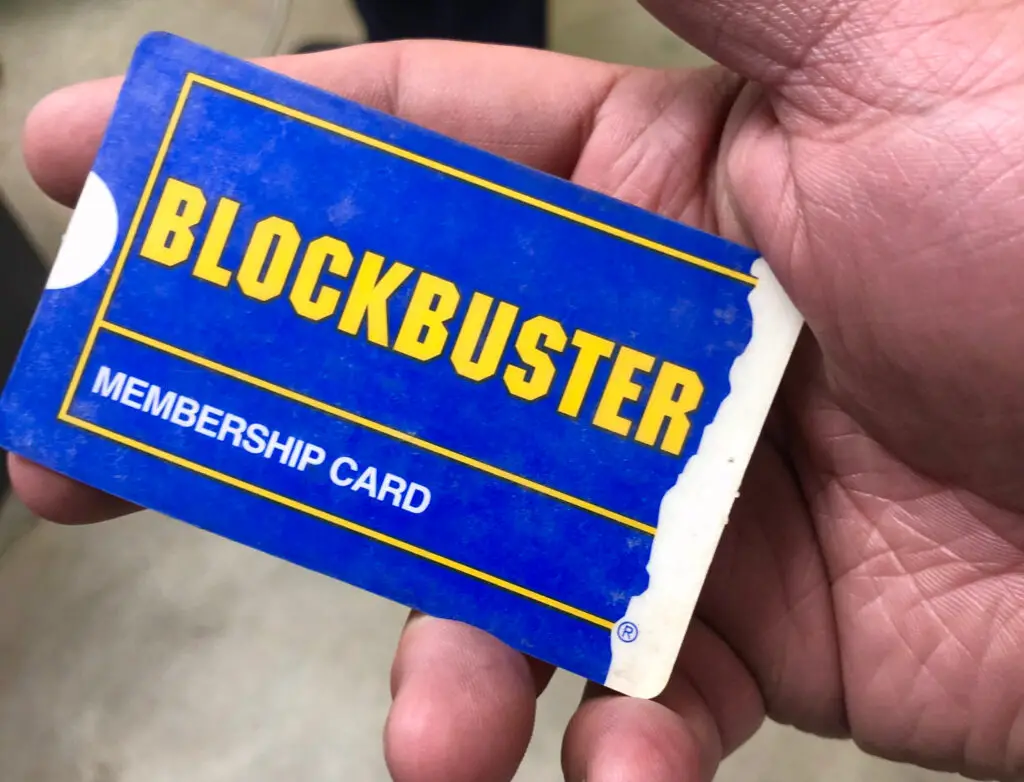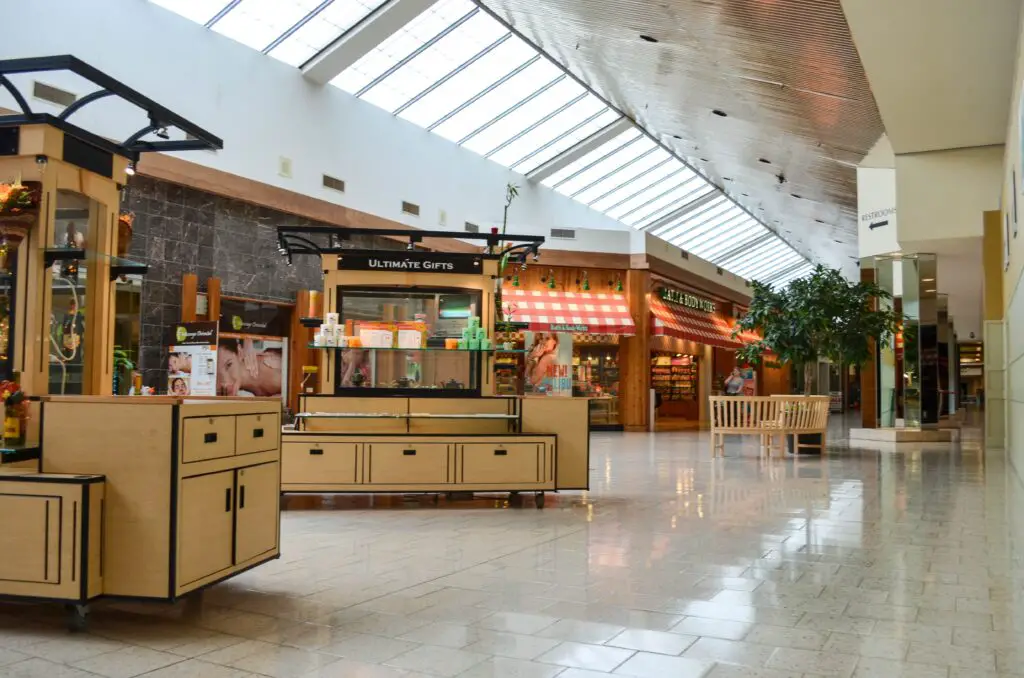1. Video Store Clerk

Just 10 years ago, you could still wander into a Blockbuster or a neighborhood video store, chat with the clerk about the best new releases, and leave with a stack of DVDs. Video store clerks were like unofficial movie critics and therapists rolled into one, offering recommendations based on your mood and favorite genres says Forbes.
But as streaming services like Netflix and Hulu took off, the need for physical rentals disappeared almost overnight. Stores started closing left and right, and those friendly clerks had to move on to new jobs. Some transitioned into tech support or customer service roles, but others simply saw their beloved industry vanish. Now, physical video stores are more of a novelty than a necessity. It’s wild to think about how quickly it all changed adds CNBC.
2. Travel Agent

Back in the early 2010s, many people still called up a travel agent when they were planning a big trip. Whether it was a honeymoon or a European adventure, travel agents would piece everything together, from flights to hotels to excursions says YourTango.
Then came the explosion of travel websites like Expedia, Kayak, and Airbnb, giving travelers the power to book everything themselves. While some luxury travel agents are still around for high-end trips, the average vacation planner doesn’t usually pick up the phone anymore. Many agents had to pivot to different areas of hospitality or sales. It’s bittersweet because there was something comforting about having someone else handle all the stressful details. Now, it’s mostly DIY shares Business Insider.
3. Mall Kiosk Worker

Remember when mall kiosks were everywhere, hawking everything from cell phone cases to flat irons to quirky toys? Working a mall kiosk was a pretty common side hustle or first job just a decade ago, especially for young people.
But with malls themselves on the decline and online shopping taking over, the demand for these jobs has seriously dropped. Many kiosks have disappeared along with the foot traffic that once made them profitable. Some workers shifted to selling products online or moved into retail jobs in other industries. Still, there was something kind of charming about those little booths and the ambitious people running them. You hardly see them anymore.
4. Newspaper Delivery Driver

Even in the mid-2010s, plenty of people still relied on a newspaper delivery driver for their daily news. It was a solid early morning job that fit well around school schedules or even as a second job for adults.
As newspapers rapidly transitioned to digital, though, subscriptions dwindled and the need for physical deliveries nearly vanished. Many drivers had to find new gigs, often in rideshare services like Uber or Lyft. The printed paper is becoming a rare sight altogether. While there’s still something special about holding a newspaper in your hands, it’s just not the daily habit it once was. Another slice of normal life that’s faded.
5. Photo Lab Technician

Getting film developed used to be a regular errand, and photo lab technicians were the magicians behind the counter making it all happen. Whether it was at a pharmacy, grocery store, or a standalone photo shop, these workers helped preserve people’s memories.
But once smartphone cameras and instant photo apps took over, traditional film development became almost obsolete. Some technicians stayed on for digital photo printing, but many lost their jobs altogether. A few specialty labs still exist for film lovers, but it’s a niche market now. There’s a lot of nostalgia wrapped up in those old photo envelopes. It’s a different world today when your entire camera roll lives in your pocket.
6. Telemarketer

It wasn’t so long ago that answering the phone meant taking a call from a real live telemarketer trying to sell you everything from credit cards to new windows. Telemarketing was a huge industry and a pretty common job for people who were good at talking and handling rejection.
Now, thanks to robocalls, spam filters, and stricter laws, the traditional telemarketer job is practically extinct. Companies either use automated systems or have outsourced calls overseas. Many former telemarketers moved into customer service chat roles or other types of remote work. It’s nice not to be interrupted during dinner quite as much these days. Still, it was a skill set that required some serious grit.
7. Cash-Only Taxi Driver

Ten years ago, if you needed a ride, you flagged down a taxi or called one to pick you up. Cash-only taxi drivers were everywhere, and navigating traffic was just part of their daily grind.
But then Uber and Lyft completely changed the game, offering easy payment through apps and cutting out the need for physical cash altogether. Many traditional cab drivers had to adapt by joining rideshare services or retiring early. Cities that once had booming taxi industries now have more rideshare cars than yellow cabs. While taxis still exist, they’re a lot less common—and not nearly as cash-focused. It’s a huge shift in how we get around.
8. Data Entry Clerk

Data entry used to be the bread and butter of many office environments, with clerks manually inputting information into spreadsheets all day long. It was a reliable if tedious, way to earn a paycheck.
However, advances in automation and software programs eliminated much of the need for human data entry. Systems can now scan and input information almost instantly, making the job nearly obsolete. Some former clerks upskilled into administrative assistant or IT roles to stay employed. There’s still some data entry work here and there, but nowhere near the volume there once was. Technology really sped this one along.
9. Bank Teller

There was a time when going to the bank meant standing in line and chatting with a teller to deposit a check or withdraw cash. Being a bank teller was a stable, respected job for a lot of people.
But with the rise of online banking, mobile check deposits, and widespread ATM access, fewer people walk into a bank branch today. Many banks have reduced their number of tellers or closed branches altogether. Some tellers moved into customer service roles or became personal bankers. The human touch at the bank is something many miss, even if apps make everything faster. It’s another quiet shift that changed our routines.
10. DVD Salesperson

At big box stores and electronics shops, DVD sections once took up entire aisles, and salespeople were there to help you pick out the perfect movie. A job selling DVDs was a pretty solid gig for film buffs and retail workers alike.
Now, streaming services have made physical media feel almost antique. Stores shrank their DVD sections to almost nothing, and those sales positions disappeared along with them. Some of these workers stayed in retail, while others pivoted to tech or entertainment industries. There’s still a niche market for collectors, but it’s not the bustling business it used to be. Kind of sad when you think about how exciting buying a new movie used to be.
11. Call Center Rep for Directory Assistance

Calling 411 was once the easiest way to find a phone number or address you needed, and real people staffed the call centers that made it happen. Working as a directory assistance rep was a steady, behind-the-scenes job.
However, with smartphones, Google searches, and digital maps now just a click away, nobody really needs to call for information anymore. Many call centers shut down or transitioned to handling customer service for other industries. Workers had to adapt or find new roles entirely. It’s another example of technology making a once-essential job almost completely unnecessary. Hard to believe it changed so fast.
12. Print Magazine Editor

In the early 2010s, there were still dozens of glossy magazines hitting newsstands every month, and editors worked tirelessly to put them together. It was a dream job for many who loved writing, fashion, or culture.
Today, though, print magazines have dwindled dramatically as digital media takes center stage. Many editors shifted into content marketing, digital publishing, or freelance writing. Some iconic magazines shut down altogether, while others moved entirely online. It’s a bittersweet reality for those who loved flipping through fresh pages. Reading on a screen just isn’t quite the same.
13. Door-to-Door Salesperson

Whether it was vacuums, knives, or even encyclopedias, door-to-door sales was still alive (if not thriving) about a decade ago. It was a job that required serious charm and thick skin.
Nowadays, between online shopping, “No Soliciting” signs, and general safety concerns, door-to-door sales has all but disappeared. Many companies shifted to online sales platforms or retail partnerships instead. Former salespeople moved into customer service, marketing, or different types of sales roles. It was definitely a tough job, but one that taught people valuable skills. Another profession that’s mostly faded into memory.
14. Library Clerk

Libraries were still bustling community hubs just 10 years ago, and clerks kept everything organized behind the scenes. They checked books in and out, helped with computer systems, and kept shelves in perfect order.
However, as budgets tightened and more resources moved online, many libraries cut back on staff. Some clerks transitioned into broader administrative roles or moved into school systems. Libraries are still around, but many have fewer workers and more self-service systems. There’s still something magical about wandering the stacks, though. Hopefully, that feeling never disappears completely.
